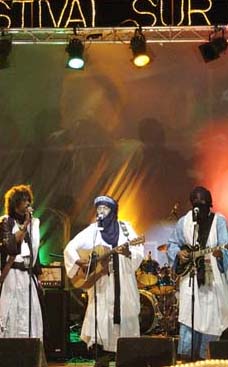1997.09.01: September 1, 1997: Headlines: COS - Philippines: Journalism: Columbia Journalism Review: Julia Campbell, a New York Times freelancer, was arrested on charges of disorderly conduct at rapper Biggie Smalls's tumultuous funeral on March 18, 1997
Peace Corps Online:
Directory:
Philippines:
Peace Corps Philippines:
Peace Corps Philippines: Newest Stories:
2007.04.14: April 14, 2007: Headlines: COS - Philippines: Safety: Chicago Tribune: Peace Corps Volunteer Julia Campbell Missing in Philippines :
Read stories by and about Julia Campbell who was a free lance journalist in New York City before joining the Peace Corps:
1997.09.01: September 1, 1997: Headlines: COS - Philippines: Journalism: Columbia Journalism Review: Julia Campbell, a New York Times freelancer, was arrested on charges of disorderly conduct at rapper Biggie Smalls's tumultuous funeral on March 18, 1997
Julia Campbell, a New York Times freelancer, was arrested on charges of disorderly conduct at rapper Biggie Smalls's tumultuous funeral on March 18, 1997

At rapper Biggie Smalls's tumultuous funeral on March 18, Julia Campbell, a New York Times freelancer, was arrested on charges of disorderly conduct. A police report charged she had incited the crowd and pushed a police officer. Campbell insists that, throughout the incident, "I acted as a professional." And Freeman, the Times attorney who worked on the case, says a local TV news tape of the incident "showed her being arrested without a provocation on her part. A tear-gas canister went off and she asked what was going on." But when the charges were dropped on April 11, the Times agreed to a police department press release announcing that "Both the Police Department and The New York Times agreed that the arrest could have been avoided with a greater degree of insight and respect by both the police officers and the reporter."
PCOL Comment: Peace Corps Volunteer Julia Campbell has been missing since April 8 in a mountainous northern area about 160 miles north of Manila Campbell, 40, was last seen in the town of Banaue in Ifugao province, where she had planned to hike alone. The area is famed for its mountainside rice terraces and pine forests. The New People's Army also operates there.
Julia Campbell, a New York Times freelancer, was arrested on charges of disorderly conduct at rapper Biggie Smalls's tumultuous funeral on March 18, 1997
Hardball in New York
by Konstantin Richter
Richter is CJR's assistant editor
September/October 1997
Caption: New York Times stringer Julia Campbell is handcuffed by police as she is arrested and charged with disorderly conduct during a disturbance that broke out in the Brooklyn borough of New York after the funeral procession of rap star The Notorious B.I.G., Tuesday, March 18, 1997, in New York. (AP Photo/Peter Svensson)
When New York Times reporter Alan Finder wanted to check on a city survey that had found an unprecedented 83 percent of New York streets "acceptably clean," city officials refused to discuss the methodology of the rating system or even to name the employees who had conducted the survey. The reporter was not surprised. In New York these days, he says, "It's clearly more difficult to get information from city agencies. Sometimes it discourages reporters - myself included. At other times you go out and you get your story anyway." In this case, the Times editors sent Finder to Washington, D.C. for training on how to apply a widely used rating system. His own survey of 800 city streets, published in April, gave New York a much lower grade than it had given itself.
[Excerpt]
Moreover, news organizations cannot or will not litigate whenever there is an incident. Suits cost money. And George Freeman, the assistant general counsel at The New York Times, says that going through the courts "takes so long that by the time you get access, no one cares about the story anymore. Often we tell our reporters to use their skills in order to get the information."
Given such limitations, news organizations pick their battles. At rapper Biggie Smalls's tumultuous funeral on March 18, Julia Campbell, a New York Times freelancer, was arrested on charges of disorderly conduct. A police report charged she had incited the crowd and pushed a police officer. Campbell insists that, throughout the incident, "I acted as a professional." And Freeman, the Times attorney who worked on the case, says a local TV news tape of the incident "showed her being arrested without a provocation on her part. A tear-gas canister went off and she asked what was going on."
But when the charges were dropped on April 11, the Times agreed to a police department press release announcing that "Both the Police Department and The New York Times agreed that the arrest could have been avoided with a greater degree of insight and respect by both the police officers and the reporter." Freeman says, "We have to look beyond the individual incident to the continuum of dealing with the police department. To be antagonistic would not serve us in the long run."
Links to Related Topics (Tags):
Peace Corps Annual Report: 1997; Peace Corps Philippines; Directory of Philippines RPCVs; Messages and Announcements for Philippines RPCVs; Journalism
When this story was posted in April 2007, this was on the front page of PCOL:





Peace Corps Online The Independent News Forum serving Returned Peace Corps Volunteers
 | Chris Dodd's Vision for the Peace Corps
Senator Chris Dodd (RPCV Dominican Republic) spoke at the ceremony for this year's Shriver Award and elaborated on issues he raised at Ron Tschetter's hearings. Dodd plans to introduce legislation that may include: setting aside a portion of Peace Corps' budget as seed money for demonstration projects and third goal activities (after adjusting the annual budget upward to accommodate the added expense), more volunteer input into Peace Corps operations, removing medical, healthcare and tax impediments that discourage older volunteers, providing more transparency in the medical screening and appeals process, a more comprehensive health safety net for recently-returned volunteers, and authorizing volunteers to accept, under certain circumstances, private donations to support their development projects. He plans to circulate draft legislation for review to members of the Peace Corps community and welcomes RPCV comments. |
 | He served with honor
One year ago, Staff Sgt. Robert J. Paul (RPCV Kenya) carried on an ongoing dialog on this website on the military and the peace corps and his role as a member of a Civil Affairs Team in Iraq and Afghanistan. We have just received a report that Sargeant Paul has been killed by a car bomb in Kabul. Words cannot express our feeling of loss for this tremendous injury to the entire RPCV community. Most of us didn't know him personally but we knew him from his words. Our thoughts go out to his family and friends. He was one of ours and he served with honor. |
 | Peace Corps' Screening and Medical Clearance
The purpose of Peace Corps' screening and medical clearance process is to ensure safe accommodation for applicants and minimize undue risk exposure for volunteers to allow PCVS to complete their service without compromising their entry health status. To further these goals, PCOL has obtained a copy of the Peace Corps Screening Guidelines Manual through the Freedom of Information Act (FOIA) and has posted it in the "Peace Corps Library." Applicants and Medical Professionals (especially those who have already served as volunteers) are urged to review the guidelines and leave their comments and suggestions. Then read the story of one RPCV's journey through medical screening and his suggestions for changes to the process. |
 | The Peace Corps is "fashionable" again
The LA Times says that "the Peace Corps is booming again and "It's hard to know exactly what's behind the resurgence." PCOL Comment: Since the founding of the Peace Corps 45 years ago, Americans have answered Kennedy's call: "Ask not what your country can do for you--ask what you can do for your country. My fellow citizens of the world: ask not what America will do for you, but what together we can do for the freedom of man." Over 182,000 have served. Another 200,000 have applied and been unable to serve because of lack of Congressional funding. The Peace Corps has never gone out of fashion. It's Congress that hasn't been keeping pace. |
 | PCOL readership increases 100%
Monthly readership on "Peace Corps Online" has increased in the past twelve months to 350,000 visitors - over eleven thousand every day - a 100% increase since this time last year. Thanks again, RPCVs and Friends of the Peace Corps, for making PCOL your source of information for the Peace Corps community. And thanks for supporting the Peace Corps Library and History of the Peace Corps. Stay tuned, the best is yet to come. |
 | History of the Peace Corps
PCOL is proud to announce that Phase One of the "History of the Peace Corps" is now available online. This installment includes over 5,000 pages of primary source documents from the archives of the Peace Corps including every issue of "Peace Corps News," "Peace Corps Times," "Peace Corps Volunteer," "Action Update," and every annual report of the Peace Corps to Congress since 1961. "Ask Not" is an ongoing project. Read how you can help. |
Read the stories and leave your comments.

Some postings on Peace Corps Online are provided to the individual members of this group without permission of the copyright owner for the non-profit purposes of criticism, comment, education, scholarship, and research under the "Fair Use" provisions of U.S. Government copyright laws and they may not be distributed further without permission of the copyright owner. Peace Corps Online does not vouch for the accuracy of the content of the postings, which is the sole responsibility of the copyright holder.
Story Source: Columbia Journalism Review
This story has been posted in the following forums: : Headlines; COS - Philippines; Journalism
PCOL36861
44

















